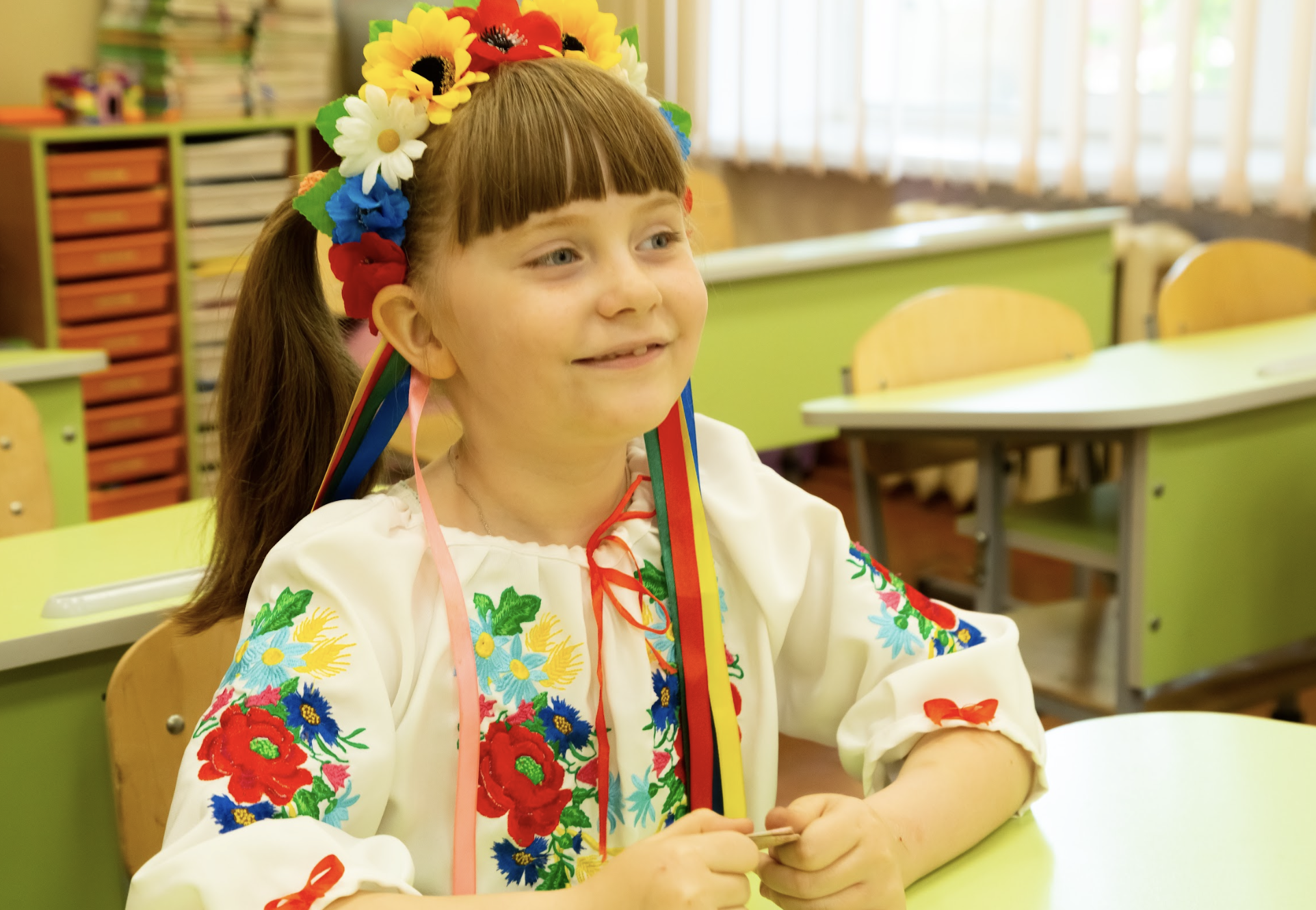Resilience and Renewal: How NGOs are Transforming Education in Ukraine
On a chilly winter day, the war-torn landscape of Ukraine is punctuated by a surprising sound: the cheerful chattering of children. Inside a converted bomb shelter, beneath a school in Chernihiv, they gather around laptops, their eager eyes glued to the screens as their teachers guide them through their lessons. A testament to human resilience and adaptability, these makeshift classrooms bear witness to the herculean efforts of international NGOs, bolstering Ukraine’s education system amid crisis.
When Russia’s invasion thrust Ukraine into a maelstrom of disruption and trauma, it didn’t just leave physical scars across the country. It threatened to irrevocably damage the education of an entire generation. Around 5 million children had their schooling disrupted, as per UNICEF estimates. The frequent air raids, blackouts, internet service disruptions, and lack of heating forced schools to adapt or perish.
Yet, Ukraine chose to adapt. Schools transformed bomb shelters into classrooms, while students alternated between remote and in-person classes, depending on the availability of electricity. The Ukrainian education ministry reported that, of Ukraine’s approximately 13,000 operational schools, 1.1 million students attended class in person as of January’s end, while over 2.7 million children learned online or through a combination of online and in-person teaching.
Amid this chaos, international NGOs emerged as saviors, rising to the colossal challenge of sustaining education in Ukraine. Spearheading initiatives like savED’s digital learning centers and the International Research & Exchanges Board’s mobile school project, these organizations have been instrumental in preserving normalcy for Ukrainian children.
The EU has committed a whopping 100 million euros to restore Ukraine’s educational infrastructure. Of this, 34 million euros of humanitarian aid is directed through UN agencies to repair minor to moderate damage in schools and provide equipment for classrooms and shelters. An additional 66 million euros will be injected directly into the Ukrainian state budget.
Notable contributions have come from UNICEF, UNESCO, Google, and Save the Children, who have supplied technical learning aids, such as laptops and software for distance education, in large numbers. UNESCO and Google alone have provided a staggering 50,000 laptops for teachers.
Furthermore, the psychological wellbeing of students and teachers, which often tends to be overlooked, has been addressed by several organizations. Initiatives have focused on providing psychological support to students while equipping teachers with the necessary skills to manage the children’s psycho-emotional state during wartime.
Despite the daunting challenges, there remains a palpable spirit of determination among Ukraine’s educators. Teachers Yuliia Masliana and Kateryna Bokach, both working in a shelter-turned-classroom in Chernihiv, face frequent disruptions to their teaching schedules due to sirens and air raids. Yet, they press on, ensuring their students feel safe and continue to learn:
*Via Bokach, Masliana said one of the biggest challenges is helping students feel they are in a safe place.
*Some days, there are no sirens. Others, students and teachers will have to move to shelters three or four times.
*”Sometimes it is difficult to breathe because there are a lot of children and teachers, and there is a lot of noise,” Bokach said. “They are tired after the shelters, and I also am tired because we can sit in the shelter for one or two hours.”
The monumental efforts of these organizations and individuals illustrate a crucial truth: education cannot wait, even in times of war. Through creative solutions and relentless dedication, they are preserving the future of a generation.
It’s inspiring to note that the most valuable resource in these trying times isn’t necessarily the technical learning aids or the funding – as vital as they are – but the unwavering spirit of the teachers, students, and aid workers determined to keep the light of education burning in the face of adversity.
As we look forward, it’s clear that the road to recovery is long, but with continued support and resilience, Ukraine’s education system will endure and hopefully flourish. For, in the words of UNICEF’s Afshan Khan, “There is no pause button. It is not an option to simply postpone children’s education.”
You see, the UNICEF representatives. I met with them. They always have to fill out a form about the damage to the institution. They come, they take a look, they take pictures, and we send them the pictures. Then they write it down and offer us shelters. I say: we already have a shelter, the founder has allocated funds for us, and it’s already done. Then they said: “Let’s see, maybe the offices are damaged, what do you think?” We agreed on the computer science classroom. Principal, Kyiv oblast










